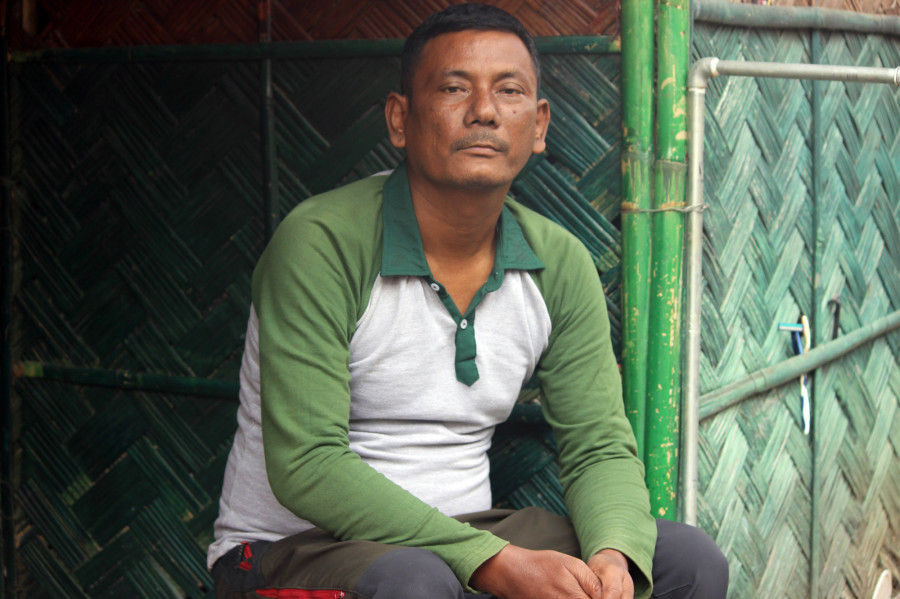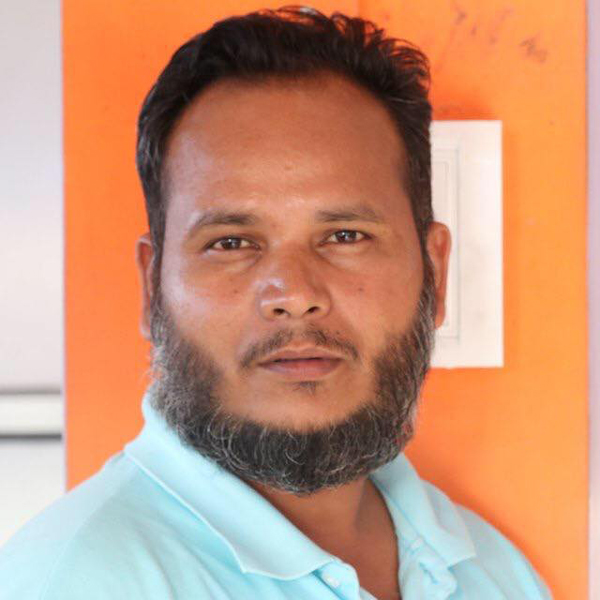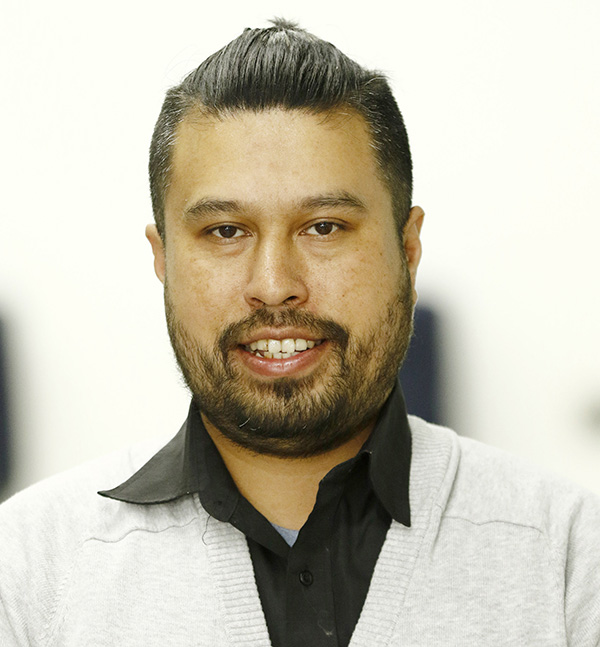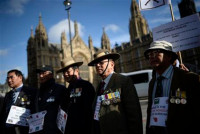National
For long-haul drivers, long hours on the road and no help in case of accidents
Though stipulated by law, injured drivers and the kin of the deceased rarely receive any financial assistance from their employers or the government.
Parbat Portel & Samuel Chhetri
Last month, a bus heading east from Dharan crashed at Belbari in Morang district. The driver of the bus, 49-year-old Janga Bahadur Rajbanshi, sustained serious head injuries. He was brought to the B&C Hospital in Birtamod, where he received treatment in the intensive care unit. He died nine days later.
Rajbanshi’s family owed the hospital over Rs525,000 but was unable to pay, leading the hospital to hold Rajbanshi’s body for five days. The hospital released the body only after the bus owner agreed to pay Rs60,000 as partial payment for the amount owed. The vehicle operator also provided Rs50,000 for the final rites of Rajbanshi and assured the family that Rs500,000 would be provided as a payout from the insurance.
However, a month since the agreement, the family is yet to receive the promised funds.
Like Rajbanshi, many long distance highway drivers operate without fixed salaries, relying on payments per trip. This can lead them to work long hours, making multiple trips in order to make decent pay, which in turn can lead to accidents. And when something untoward does happen, there is often a delay or denial in insurance payouts and compensation by their employers.
“A driver gets Rs2,000-Rs 2,500 as allowance per trip. The more trips we make, the more we earn,” said Basudev Adhikari, who drives on the Kakarvitta-Pokhara route. “I have never heard of a driver getting a fixed salary. We have to earn more by putting in extra trips, which leads to mental fatigue and health issues.”
According to the Labour Act-2017 and Motor Vehicles and Transport Management Act-1993, transport workers are mandated a maximum of eight hours of work time. But both laws don’t mention any rest time for long haul drivers. And despite the law stipulating that transport companies hire two drivers for long haul routes, numerous companies have not complied with the rules, owing to lax monitoring on the part of the authorities.
According to Raju Lama, a bus driver who operates on the Kakarvitta-Kathmandu route, transport entrepreneurs and government authorities need to be more vigilant and monitor ongoing practices so as to minimise the risk of accidents.
“Human error is behind the majority of accidents but the authorities must also take into account factors like bad road conditions and mechanical failure. Drivers do not deliberately cause accidents, as we also have families and love our lives,” said Lama. “Rather than blaming the drivers for accidents, the authorities should monitor and regulate the profession by fixing salaries, work and rest hours, and accident benefits.”
Although the Labour Act requires the employer to pay a premium to ensure every worker Rs700,000 as accident coverage along with at least Rs100,000 as medical insurance. The medical coverage is bought through equal annual contributions from the employer and the worker. But in reality, the victims and their families rarely get benefits from their employers.
The Labour Act also stipulates that in the event of an injury, compensation is to be provided to the victim from the insurance amount while the closest successor is entitled to the accident insurance if the worker dies on the job. But these clauses are rarely implemented.
Forty-two-year-old Kishor Shrestha suffered a severe heart attack on September 19 while resting at a Hetauda hotel after exchanging shifts with another driver. Shrestha’s colleagues found him unconscious and took him to the Churiya Hospital where he received preliminary treatment. The heart attack left Shrestha paralyzed on his right side. After two months of rigorous treatment, his health is improving gradually but his hospital bills are piling up.
Shrestha, who was supporting a family of five, has already spent over Rs300,000 for the treatment. Shrestha’s wife Bimala said that they had taken a loan against their house as collateral. With no other means of income, the family may lose their home.
“We are spending Rs10,000-Rs15,000 on each hospital visit,” said Bimala. “I was doing small jobs here and there to support my family prior to the accident, but I now have to stay back and look after him. At this rate, we might not have a roof above our heads.”
According to Hari Timsina, former vice-president of the then Mechi Bus Entrepreneurs Association, the transport company should have borne the costs of Shrestha’s medical treatment and passed on the insurance amount to the victims of accidents.
“It is the company’s duty to pay compensation to the victims, but I have come across cases where victims have not received the insurance amount from their employers,” said Timsina. “The onus lies on the company and the vehicle owner to look after their employees. The state too could increase the amount of insurance coverage so that victims of such tragedies could at least have some relief.”
Shrestha, however, has not lost hope and says that once he regains his health, he will continue to work and pay off the debt.
“I have three children to look after and I am hopeful that I will be able to work after the treatment is over,” he said.




 19.57°C Kathmandu
19.57°C Kathmandu
















